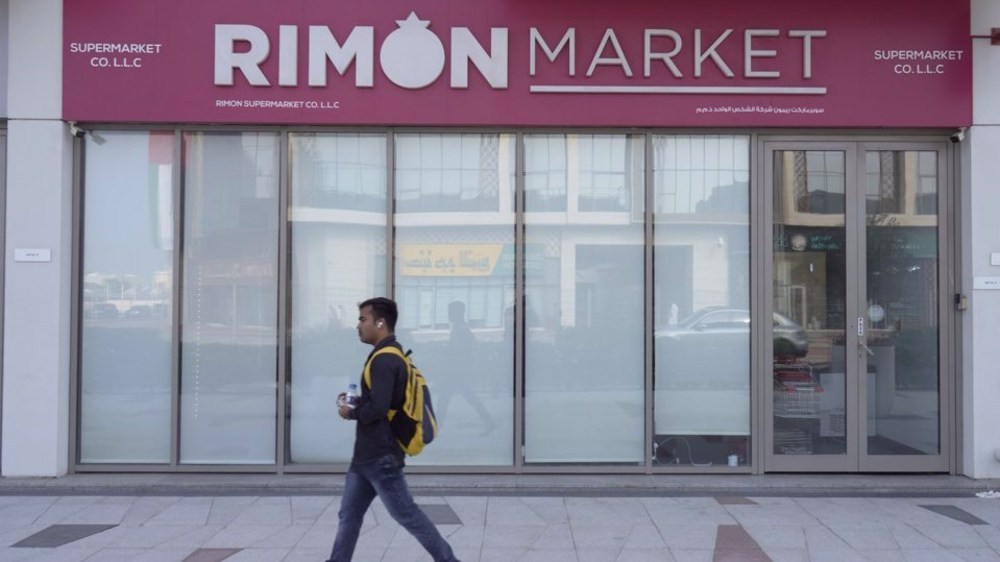UAE, Saudi Arabia reject Qatari emir's call for dialog
The United Arab Emirates has rejected a Qatari call for dialog, saying Doha has to change its policies before talks could take place to lift a Saudi-led blockade of the Persian Gulf Arab state.
Qatar last month dismissed a list of 13 demands put forward by four Arab countries, which asked the country to close down Al Jazeera television, curb ties with Iran and shut down a Turkish military base.
UAE Minister of State for Foreign Affairs Anwar Gargash on Saturday welcomed Qatari emir Sheikh Tamim bin Hamad Al Thani's call for dialog, but said Doha had to make changes which he did not specify.
"Dialog is necessary and needed but its backbone has to be revision," Gargash said as he expressed disappointment with the Qatari emir's first speech since the crisis began last month.
"I had hoped that the speech of Sheikh Tamim would be an initiative for revision," Gargash said of the remarks made on Friday.
Sheikh Tamim described the blockade as "a pre-planned smearing campaign" and an act of aggression, while reasserting Doha’s position that it would not capitulate under pressure.
The quartet comprising Saudi Arabia, Egypt, the UAE, and Bahrain severed diplomatic ties and cut all land, sea, and air routes with Qatar on June 5, accusing it of supporting terrorism and intervening in the region.

Read more:
On Friday, Saudi Arabia’s Foreign Minister Adel al-Jubeir visited Italy in an apparent attempt to promote the sanctions, insisting in Rome that Qatar had to meet the demands to have the blockade lifted.
“We provided our Qatari brothers with a set of demands… We hope wisdom in Qatar will prevail and respond positively to these demands so we can put an end to this page... We will wait for the desired change to occur,” he said.
Turkish President Tayyip Erdogan is heading to the Persian Gulf this weekend in an attempt to patch up relations. He will begin his visit in the Saudi city of Jeddah where he is due to meet Crown Prince Mohamed bin Salman before heading to Kuwait and Qatar.
Turkey has stood behind Qatar during the dispute, providing the small nation with food and pledging military support. Ankara has maintained a military presence in Qatar since 2014, sending additional troops since the crisis began.
The Saudi-led quartet in the crisis, which also includes Egypt and Bahrain, is wary of Turkey's links with the Muslim Brotherhood as well as its military buildup in the Persian Gulf, complicating Ankara's role as a mediator in the crisis.
A hopeful opening, however, came after Qatar's BeIN sports network began broadcasting in the United Arab Emirates on Saturday.
Subscribers said they were receiving the network of BeIN sports channels, which had been blocked since the start of the Persian Gulf crisis.
Etisalat, a UAE-based telecommunications giant, also reinstated BeIN sports which is hugely popular for broadcasting European football leagues.
"We would like to advise that starting 22 July 2017 the BeIN package will be available to customers and normal charges will apply," said an email message from Etisalat for subscribers.
It was unclear what was behind the decision to allow BeIN, a subsidiary of the Qatari satellite network Al Jazeera, to broadcast again.
VIDEO | Yemenis praise the military for its successful operations against Israel
VIDEO | Israel continues to bomb Gaza homes
VIDEO | An insider's view of the country: Meybod City in Yazd
‘All wars have rules. All of those rules have been broken’ by Israel
VIDEO | Report flags India’s violation of rights of Rohingya detainees
Turkey's foreign minister meets Syria's de facto leader in Damascus
VIDEO | US Syria plots
'Next to impossible' to rescue patients from Gaza's Kamal Adwan Hospital: Director













 This makes it easy to access the Press TV website
This makes it easy to access the Press TV website